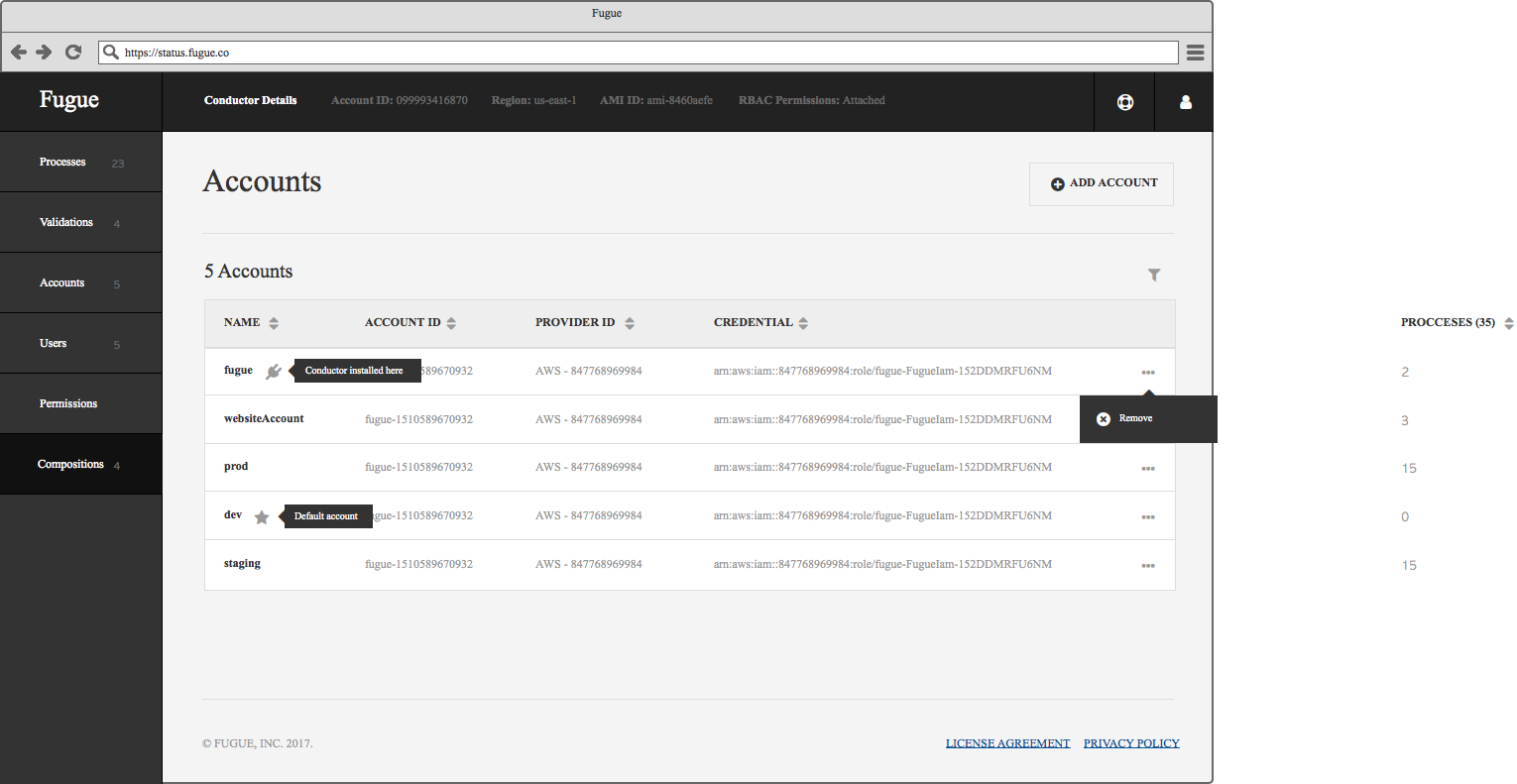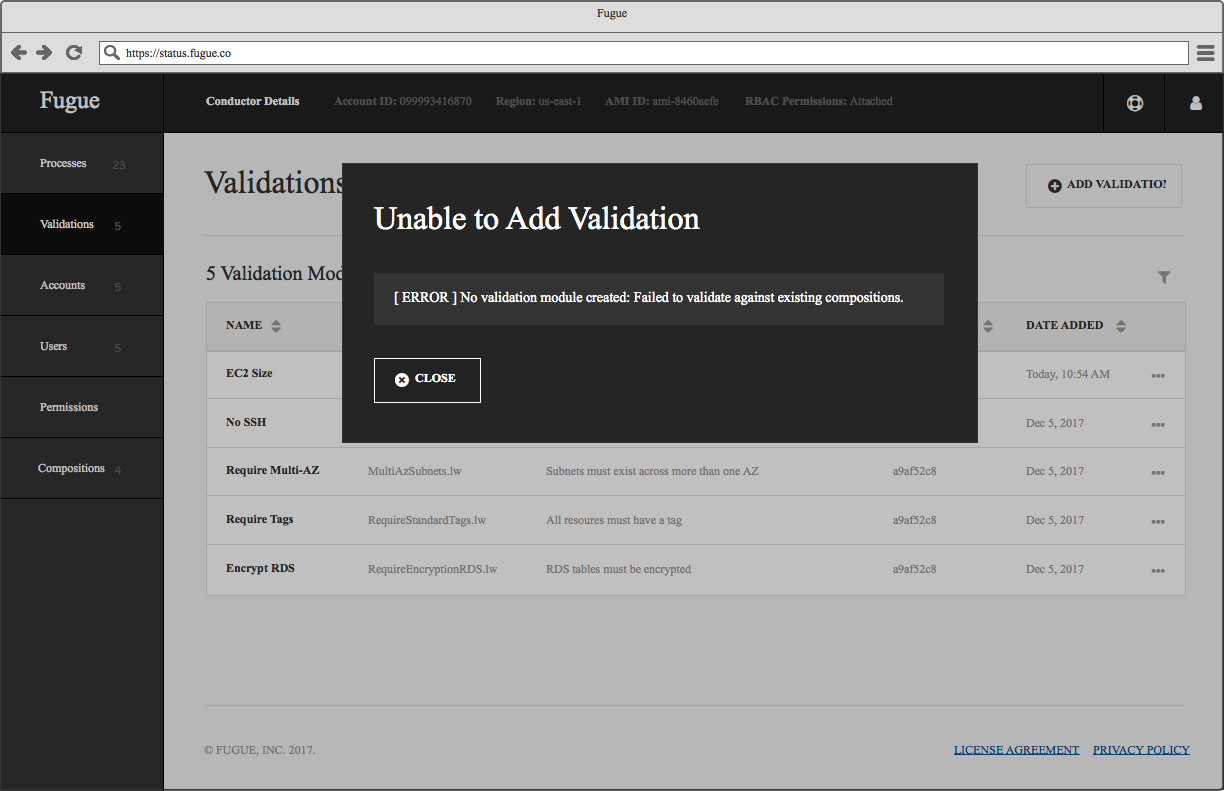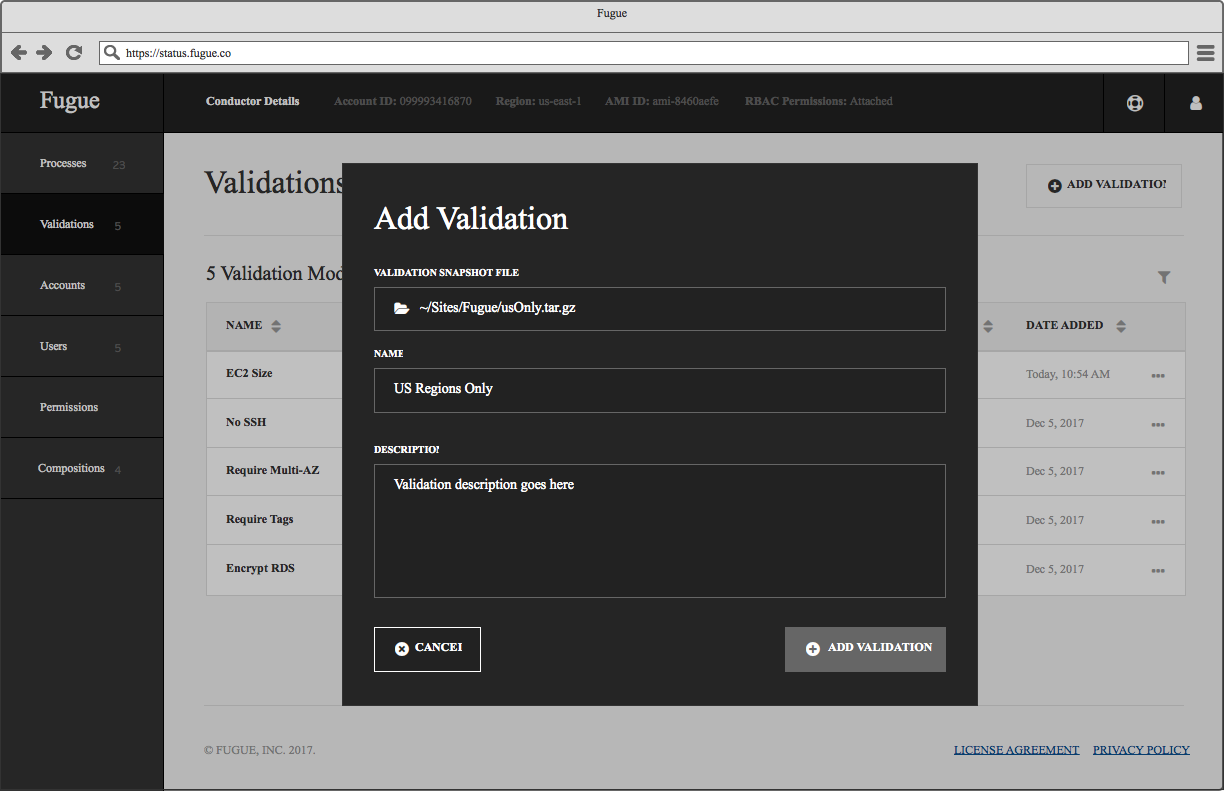Fugue’s Enterprise Web Console (EWC)
Company: Fugue, Inc. (2015-2018)
Role: UX Design, Product Design Strategy, Product Management
Introduction
Fugue’s Enterprise Web Console was an Infrastructure as Code application. Developers would define infrastructure configuration in code templates, then run it through Fugue’s core engine to create live “processes” that would continue to enforce configurations even if config-drift occurred.
Product Goals
Create a MVP web application that was only implemented as a CLI tool so that less sophisticated users could benefit from Fugue’s core technology.
Initial Wireframes
A sample of wireframes from initial explorations of the information architecture for the web console. These wireframes were not for engineering to build, but to explore how we could take abstract concepts like processes, accounts, and compositions (a term for “Ludwig Templates”) could come together.
User Testing Prototype
Below is a screen recording of the prototype I built to test with our early customers.
EWC’s Asynchronous Notification System
EWC's Notification System
One big challenge with EWC & Fugue was solving for asynchronous experiences.
Many of the actions a user could take would result in work being performed that may take as long as 15 mins.
We needed to create a UX that would not be "blocking" (holding a user in place until the desired user action successfully completed).
I spec'd out a "Notification System" that could help keep EWC's usability above-par with regard to system transparency.
Notification
Behavior/Interaction Guide
"Dry-run" Notification Flow, an Example
This was a document used to communicate with engineers, designers, stakeholders, and product managers how the Notification System could work for viewing "dry-run" results. A "dry-run" was essentially a report of what Fugue would have done based on the user's inputs–for auditing purposes. The Challenge: After requesting the dry-run, Fugue could take up to 5 minutes to return a result.


























